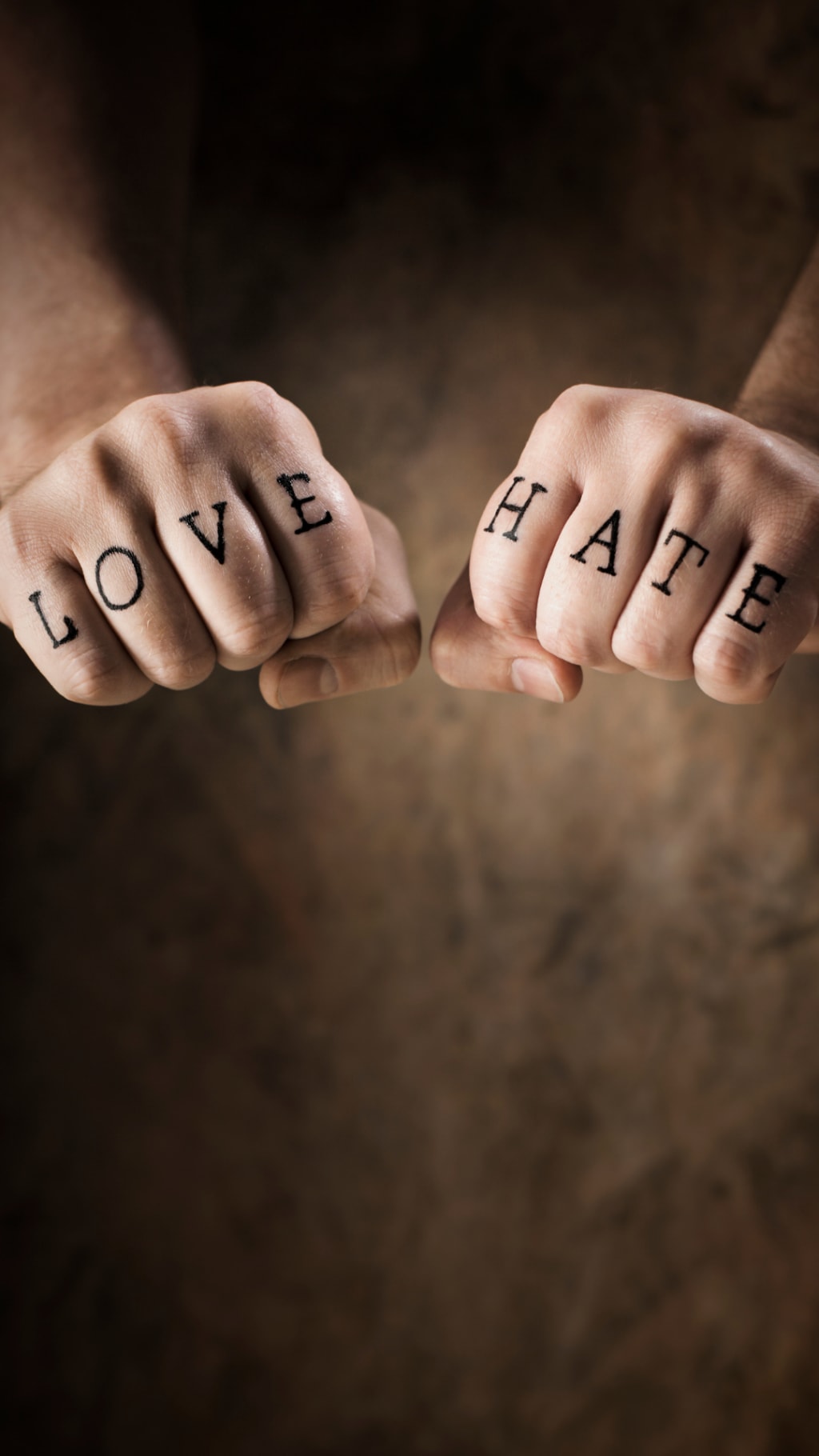Love and Hate
Explore the Strongest Emotions of Two of Humanity's

Love and hate are two opposing emotions that exist in all of us. While love is often described as a warm and positive feeling, hate is often seen as cold and negative. However, both of these emotions are complex and multifaceted, and their meanings can vary greatly depending on the context and the individual experiencing them.
Love is an emotion that with greater feelings of affection and attachment. It is a deep-seated feeling of care and concern for someone else, and it often leads to acts of kindness and generosity. Love can also bring a sense of comfort and security, as well as a feeling of being understood and accepted.
On the other hand, hate is often seen as a destructive emotion that is rooted in anger, fear, and resentment. It is often directed towards someone or something that is perceived as a threat or as causing harm. Hate can lead to negative behavior such as violence, bullying, and discrimination.
Despite the stark differences between love and hate, it is important to note that these emotions are not mutually exclusive. It is possible to love someone and hate certain aspects of their behavior, or to hate someone but also feels compassion for them. This can lead to feelings of inner conflict and can be challenging to navigate.
Love is an intense feeling of affection and cares towards someone or something. It is a complex mix of emotions, behaviors, and beliefs associated with strong feelings of affection, protectiveness, warmth, and respect for another person. Love can take many forms, including romantic love, familial love, platonic love, self-love, and unconditional love.
Romantic love is a deep emotional and physical attachment between two people who are in a romantic relationship. Familial love is the love between family members, such as parents and children, siblings, and extended family. Platonic love is a non-romantic relationship based on strong feelings of affection, respect, and trust. Self-love is the practice of taking care of oneself and valuing one's own well-being. Unconditional love is a type of love that is given freely without any conditions or expectations.
Love can bring great joy, happiness, and fulfillment to one's life. It can also bring great pain and sadness when things don't work out. Regardless of the ups and downs, love is a powerful and important part of the human experience. It is a driving force in many of our relationships, motivates us to be better people, and helps us to create meaningful connections with others.
Hate is an intense feeling of dislike or animosity towards someone or something. It is an emotional response that can be fueled by prejudice, anger, fear, or past experiences. Hate can take many forms, including racism, sexism, homophobia, and religious intolerance.
Hate can lead to harmful actions, such as verbal or physical abuse, discrimination, and violence. It can also cause emotional distress, anxiety, and fear for those who are targeted by hate. Hate can tear communities and societies apart, creating divisions and mistrust among different groups.
However, hate is not an innate or permanent part of a person's character. It can be learned through socialization, cultural influences, and personal experiences. On the other hand, hate can also be unlearned through education, empathy, and exposure to different perspectives and experiences.
It is important to recognize and address hate whenever and wherever it arises, as it can have serious consequences for individuals and society as a whole. By promoting equality, understanding, and respect, we can work to reduce hate and create a more harmonious and inclusive world.
In conclusion, love and hate are two powerful emotions that are present in all of us to varying degrees. While love brings happiness and comfort, hate can lead to negativity and harm. Understanding the complexities of these emotions can help us better to navigate our relationships and the world around us.
About the Creator
Enjoyed the story? Support the Creator.
Subscribe for free to receive all their stories in your feed. You could also pledge your support or give them a one-off tip, letting them know you appreciate their work.





Comments
There are no comments for this story
Be the first to respond and start the conversation.